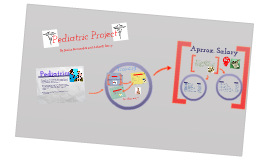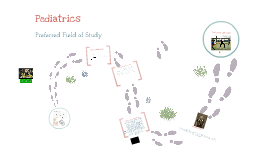pediatrics evaluation presentation
Transcript: Minnesota Handwriting Assessment Lindsay Vest About About Norm-referenced compared to others has establish psychometric properties inter-rater reliability (.87 to .98) intra-rater reliability (.93 to .99) test-retest reliability (.58 to .94). Content validity supported. self-evaluation for reliability is provided in manual. Author: Judith Reisman, PhD, OT Date: 1999 Publication: Therapy Skill Builders/ Psychological Corporation Looks at quality and speed of manuscript handwriting -Motor Learning/Acquisition FOR Theoretical Framework Depending on what factors are influencing the child's difficulty with handwriting, different frameworks may be used to guide the intervention approach -ex: ergonomic-grasp of pencil biomechanical Some factors include: memory retrieval, problem solving, language and reading ability, eye-hand coordination, visual perception, left-right discrimination The Assessment Previous handwriting tests had limitations. Cursive scoring-not well-defined required at least 2 years of writing instruction MHA -D'Nealian method of printing AND Zaner-Bloser style manuscript -more qualitative -well-defined scoring -can be used in 1st and 2nd grade D'Nealian 40% of OT referrals are from teachers or parents saying child has difficulties with handwriting D'Nealian (left-handed) Who can administer the MHA? -does not require a professional degree, accreditation, organization membership, or license/certificate. -must follow script and instructions in manual https://www.youtube.com/watch?v=vpejTEAv2kk "Near-point copy task (each test paper contains the stimulus words" (Reisman, 1990) Time to administer: about 2 1/2 minutes Materials: Manual (scoring sheet and instructions), clear ruler, timer, pencil and assessment paper Cost: $125.80 for the Manual, 25 Manuscript Sheets (Print), and 25 D'Nealian Sheets (Print) $41.70 for 4 manuscript pads (from pearsonassessments.com) (*not making a sentence) How to score the MHA Use clear, plastic 6 inch ruler to score the quality categories count all category 1 errors and subtract total number by 34 (potential errors) (in each category) Checklist There are many examples of how to score all the letters. One obtains 5 scores in areas of: 1. rate 2. legibility 3.alignment 4. size 5. spacing 6. form Printing is within allowed space and touches ruler line Curved and sharp when appropriate Must be within 1/16 inch of appropriate bottom line (different for letters like j, p, etc. Results classified as "performing like peers", somewhat below or well below" Letters within word are more than 1/4 inch from preceding letter Letters touching within word, too large, Illegible, not present, extra lines, extensions greater than 1/16 inch error points https://prezi.com/h0jfxbwko1wo/minnesota-handwriting-assessment/ Allysa Lukas Purpose Evaluates need for further OT evaluation and intervention able to determine which area of handwriting they are having difficulties with (spacing, letter formation, etc.) case study examples Case Studies 1. Abigail is having difficulties keeping up with the other kids in her class when they are doing activities with following along/copying writing and writing sentences. Her teacher is concerned since she is not able to complete her tasks in time. She is referred to the OT and it would be appropriate to administer the MHA to see if there are other areas Abigail is struggling in besides rate of writing (maybe what is causing the slower writing). 2. Joshua is having difficulties reading what he previously wrote. This has become an evident issue as they are writing stories. The class usually does not have time to write the entire story in one setting, so they pick back up later. Joshua struggles to read what he had written and therefore doesn't know where to pick up in his story. The teacher refers him to OT, who administers the MHA to figure out what specific element is causing his writing to be illegible. Similar assessments 2 comparable assessments Test of Handwriting Skills Evaluation Tool of Children's Handwriting Norm-referenced Manuscript AND cursive Dictation, near-point copying, and alphabet writing from memory Normative data provided for ages 5-11. criterion referenced 1st grade-6th grade measures legibility and speed includes manuscript AND cursive domains: lowercase and uppercase, numeral writing, near-point copying, far-point copying, manuscript to cursive transition, dictation, and sentence composition References References Karen Laurie Roston MA OT , Jim Hinojosa PhD OT FAOTA & Howard Kaplan PhD (2008) Using the Minnesota Handwriting Assessment and Handwriting Checklist in Screening First and Second Graders' Handwriting Legibility, Journal of Occupational Therapy, Schools, & Early Intervention, 1:2, 100-115, DOI: 10.1080/19411240802312947 https://www.teacherspayteachers.com/Product/Occupational-Therapy-Handwriting-Assessment-ABC-Numbers-and-Sentences-3487954?st=30736ab8b6e01a990f5e52c73c87a5df

















